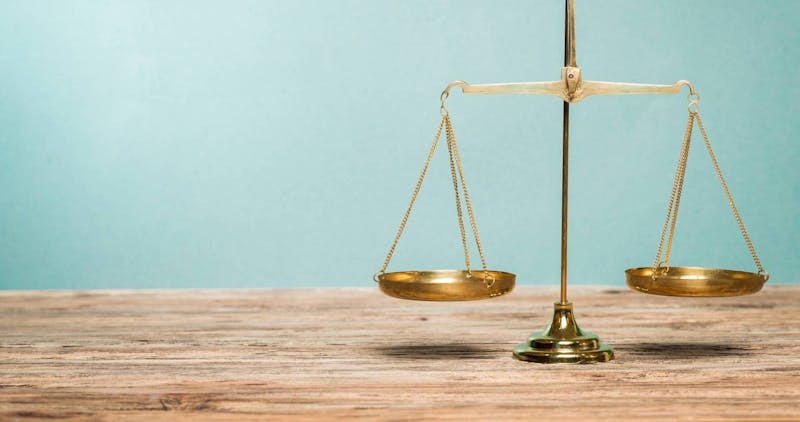
A personal injury case arises whenever someone is injured in an accident that occurs as a result of another party’s negligence. By law, these victims have the right to hire a Tampa personal injury attorney and take legal action against the at-fault party in order to recover compensation for their injuries.
But what types of compensation are awarded to personal injury victims? And what is the maximum amount of compensation that a victim can obtain by filing a personal injury claim? Keep reading to learn the answers to these questions and more.
What Types of Compensation Can Personal Injury Victims Obtain?
There are three main types of compensation that may be awarded to personal injury victims in Florida. The first category is special damages, which are awarded to personal injury plaintiffs who have suffered monetary losses or incurred expenses as a result of their injuries.
For example, a plaintiff may be awarded special damages to compensate them for their current and future medical expenses, lost wages, future lost income, and other out-of-pocket expenses.
Special damages are awarded for actual monetary losses and expenses. However, the second category, which is general damages, are awarded for non-monetary losses that the plaintiff has suffered due to their injuries.

For example, a plaintiff may receive special damages to compensate them for the emotional and physical pain and suffering they have experienced due to their injuries. General damages can also compensate plaintiffs for the loss of quality of life they have suffered. In some cases, general damages may be awarded to the plaintiff’s spouse to compensate them for loss of consortium or loss of companionship. These losses are non-monetary, but they are devastating nonetheless.
The third and final category is punitive damages. This type of compensation is rarely awarded in personal injury cases. But the court may award punitive damages in cases where the plaintiff is able to prove that the defendant either acted with gross negligence or intentionally caused them harm. If the plaintiff can prove this, the court may award punitive damages to punish the defendant for their egregious conduct.
Because punitive damages are a form of punishment, they are not awarded to compensate the victim for specific losses or expenses related to their injuries.
Is There A Cap On Personal Injury Compensation in Florida?
Many states have established caps on the amount of compensation that a plaintiff can obtain through a personal injury lawsuit. The laws regarding compensation caps vary from state-to-state, so it’s important to understand the law in Florida.

There is on cap on the amount of special damages or general damages that may be awarded to a plaintiff in a personal injury case. This means plaintiffs can be fully reimbursed for the monetary and non-monetary losses they have suffered and expenses they have incurred due to their injuries.
The state of Florida used to limit the amount of general damages that were awarded to medical malpractice victims. In the past, medical malpractice victims in this state were not able to obtain more than $500,000 in general damages. But this law was overturned by the Florida Supreme Court in 2017. Now, there is no cap on the amount of general damages that may be awarded to a plaintiff in any type of personal injury case.
There is a cap on punitive damages in the state of Florida. Punitive damages are typically capped at $500,000 or three times the amount of special and general damages awarded to the plaintiff, whichever is greater. For example, say the plaintiff is awarded $100,000 in special damages and $100,000 in general damages. This means the plaintiff may be awarded up to $600,000 in punitive damages, or ($100,000 + $100,000) x 3.
The punitive damages cap is different in cases where the defendant’s negligence was motivated by their own financial gain. In these cases, punitive damages are capped at $2 million or four times the amount of special and general damages awarded to the victim.
There is no cap on punitive damages if the plaintiff is able to prove that the defendant intentionally caused them harm. In cases like these, the court may award any sum of punitive damages to the plaintiff to punish the defendant for intentionally causing harm.
What Factors Will Affect the Value of Your Personal Injury Case?
Now that you understand the compensation caps in Florida, it’s important to learn what factors will affect the value of your case. Some of the many factors that impact how much your case is worth include:
- Severity of your injuriesLength of recovery
- Types of treatment
- Expected long-term consequences of your injuries
- Work restrictions caused by your injuriesYour incomeLiabilityEmotional distress caused by your injuries
Every case is unique. But in general, the more severe your injuries are, the higher the value of your case.

Determining the value of your claim is not easy. It can be incredibly difficult to estimate future expenses and losses and place a value on your non-monetary losses. For these reasons, if you’ve been injured, it’s in your best interest to discuss the details of your situation with an experienced personal injury attorney. Your attorney can carefully review your case and help you understand exactly how much compensation you are entitled to for your injuries.
Let Our Personal Injury Attorneys Fight For the Compensation You Deserve
Have you been injured in an accident caused by another party’s negligence? If so, seek legal representation from the skilled personal injury attorneys at Carlson Meissner Hart & Hayslett. Our team has proudly represented the injured since 1971. Together, we have been able to recover over $115 million in compensation for our clients. Now, let us go to work for you.
Contact our law office today to schedule a free consultation regarding your personal injury case.

